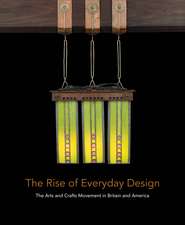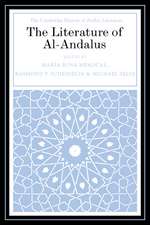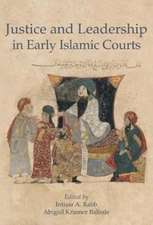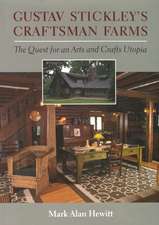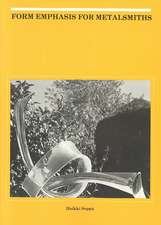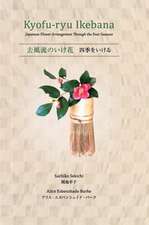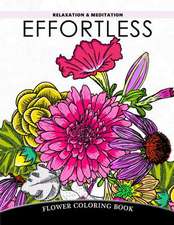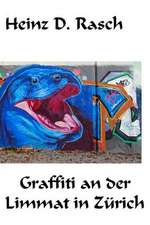The Arts of Intimacy: Christians, Jews, and Muslims in the Making of Castilian Culture
Autor Jerrilynn D. Dodds, María Rosa Menocal, Abigail Krasner Balbaleen Limba Engleză Paperback – 3 noi 2009
A dynamic vision of medieval Castilian culture and the Arabic, Hebrew, and Latin strands that are woven into its fabric
Named a Book of the Year by the Times Literary Supplement, this lavishly illustrated work explores the vibrant interaction among different and sometimes opposing cultures, and how their contacts with one another transformed them all. It chronicles the tumultuous history of Castile in the wake of the Christian capture of the Islamic city of Tulaytula, now Toledo, in the eleventh century and traces the development of Castilian culture as it was forged in the new intimacy of Christians with the Muslims and Jews they had overcome.
The authors paint a portrait of the culture through its arts, architecture, poetry and prose, uniquely combining literary and visual arts. Concentrating on the eleventh and twelfth centuries, the book reveals the extent to which Castilian identity is deeply rooted in the experience of confrontation, interaction, and at times union with Hebrew and Arabic cultures during the first centuries of its creation. Abundantly illustrated, the volume serves as a splendid souvenir of southern Spain; beautifully written, it illuminates a culture deeply enriched by others.
Named a Book of the Year by the Times Literary Supplement, this lavishly illustrated work explores the vibrant interaction among different and sometimes opposing cultures, and how their contacts with one another transformed them all. It chronicles the tumultuous history of Castile in the wake of the Christian capture of the Islamic city of Tulaytula, now Toledo, in the eleventh century and traces the development of Castilian culture as it was forged in the new intimacy of Christians with the Muslims and Jews they had overcome.
The authors paint a portrait of the culture through its arts, architecture, poetry and prose, uniquely combining literary and visual arts. Concentrating on the eleventh and twelfth centuries, the book reveals the extent to which Castilian identity is deeply rooted in the experience of confrontation, interaction, and at times union with Hebrew and Arabic cultures during the first centuries of its creation. Abundantly illustrated, the volume serves as a splendid souvenir of southern Spain; beautifully written, it illuminates a culture deeply enriched by others.
Preț: 181.08 lei
Nou
Puncte Express: 272
Preț estimativ în valută:
34.65€ • 36.18$ • 28.68£
34.65€ • 36.18$ • 28.68£
Carte disponibilă
Livrare economică 15-29 martie
Livrare express 01-07 martie pentru 51.85 lei
Preluare comenzi: 021 569.72.76
Specificații
ISBN-13: 9780300142143
ISBN-10: 0300142145
Pagini: 416
Ilustrații: 10 b-w + 200 color illus.
Dimensiuni: 178 x 254 x 25 mm
Greutate: 1.09 kg
Editura: Yale University Press
Colecția Yale University Press
ISBN-10: 0300142145
Pagini: 416
Ilustrații: 10 b-w + 200 color illus.
Dimensiuni: 178 x 254 x 25 mm
Greutate: 1.09 kg
Editura: Yale University Press
Colecția Yale University Press
Recenzii
"The compelling story of the complex entangling of Christian, Muslim, and Jewish history, culture, literature and art in medieval Iberia has been told many times before…But it has never been told like this . . . A rich tapestry of a book that brings to vivid life the dialectic of acculturation and assimilation in which medieval Spain’s three religious groups were enmeshed."—Jill Ross, Times Higher Education (UK)
"This handsomely produced and generously illustrated book explores the praxis of medieval Castilian culture inherited by Catholic kings. . . . [An] impressive work of scholarship. . . . An important addition to the scholarship of medieval Iberia."—Library Journal
"The art, the architecture, and the poetry produced in the medieval Iberian peninsula are of such astonishing quality that a survey, especially when it is as intelligent and well presented as this one, can hardly fail both to illuminate and instruct."—J.H. Elliott, New York Review of Books
"The Arts of Intimacy offers a multiconfessional and multidisciplinary alternative to the usual historical narrative of the Castilian state's construction from the first days of Muslim presence on the Iberian Peninsula through the Christian conquest of Granada in 1492. . . . The Arts of Intimacy represents an accessible, innovative, and dynamic introduction to a very complex field. . . . The study is underwritten by a sophisticated methodology and is ambitious in its attempt to confront the problem of applying nomenclature—cultural, confessional, regional, or otherwise—to forms."—Cynthia Robinson, Art Bulletin
"The Arts of Intimacy provides a perfect segue to a more focused look at the vast world of Islamdom's visual arts."—J. Renard, Religion and the Arts
"Beautifully written and lavishly illustrated, the book represents a distinguished contribution to our understanding of the cosmopolitan world of medieval Iberia."—Catholic Historical Review
"[The Arts of Intimacy] unfolds as a complex interlacing of literary, visual, and historical evidence that challenges the idealized notion of medieval Iberian convivencia, or peaceful coexistence, with nuanced interpretations of crossdisciplinary evidence. The text's high points are thoroughly enjoyable."—María Judith Feliciano, Speculum--A Journal of Medieval Studies
Named a Book of the Year by the Times Literary Supplement
Short-listed for the ACE/Mercers International Book Award, for making an outstanding contribution to the dialogue between religious faith and the visual arts
Winner of the 2010 Albert C. Outler Book Prize given by the American Society of Church History
"Jerrilynn D.Dodds, Maria Rosa Menocal, and Abigail Krasner’s Balbale’s Arts of Intimacy: Christians, Jews, and Muslims in the Making of Castilian Culture stands out in every respect: it is challenging, thorough, and compelling. Its importance lies in conveying the unique cultural and linguistic polyphony of the nascent Castilian culture. Iconographic testimonies from architecture, epigraphy and calligraphy orchestrate the historical voices expressed in an unprecedentedly rich multilingual poetry. A startling and provocative book that puts an end to any essentialist claim to be laid on this exceptional part of Europe."—Angelika Neuwirth
"I am sure the Arts of Intimacy was a labor of love for the authors, but for the reader this brilliantly conceived book opens a window onto a marvelous new vista of Muslim Spain. The Islamic political enterprise in al-Andalus collapsed in 1492, and the human survivors of that debacle were soon either expelled or expunged in baptismal fonts across Catholic Spain. Tourists now stand in admiration before the great monuments of once Spanish Islam, the solemn grandeur of the Córdoban Mezquita and the dazzling but ineffably sad rococo of the Alhambra, truly the Moors’ last sigh in Spain. But in this happy collaboration of a photographer, an art historian and a belle de letters, we are shown other Islamic monuments in Spain, often silent and unassuming ones, but more popular than the imperial mosque of Córdoba and certainly more essentially revealing than the studied curlicues of the Alhambra.
After they had rid themselves of the professed Muslims, the Spanish Christians began feverishly to scrub out even their faintest traces in their need to guarantee a true limpieza de sangre. How poorly they succeeded is documented in the Arts of Intimacy. There, hidden in plain sight in the cities and towns of Castile, are the local monuments of the Moorish style, the Western Islamic view of life and art that had worked its way deep into the fabric of Spanish sensibility. Both before and after 1492 Islamic decorative art and architecture continued to manifest itself, like flowers in mid-winter, in unlikely places across profoundly Catholic Castile and in the unexpected settings so magnificently portrayed and unpacked and understood in the dense but lucid pages of the Arts of Intimacy. Like Her Catholic Majesty Isabella accepting the surrender of Muslim Granada arrayed quite unselfconsciously in her best Moorish apparel, the Art of Intimacy shows how Castile itself continued to adorn her public face in the gracious manner of the Moors and, indeed, in the end, thought it was her natural complexion."—F. E. Peters, New York University
"A delightful blend of poetry and solid science. How a nation was born out of fascination for the enemy it was victoriously fighting, gaining momentum 'with each meal shared, or bridle admired, each textile or ivory box received in tribute,' and with each story told."—Gabriel Martinez-Gros
"All Medievalists should welcome and treasure this splendid book. Here we see, in an innovative and eminently convincing perspective, the unique phenomenon of medieval Iberia, as a collaborative and also as a conflictive creation of Castilians belonging to the three religions. As much for scholars interested in literature and language, as for those concerned with art and architecture, this book will be 'must' reading. Dodds, Menocal, and Krasner Balbale deserve our thanks and our congratulations."—Samuel G. Armistead
"This handsomely produced and generously illustrated book explores the praxis of medieval Castilian culture inherited by Catholic kings. . . . [An] impressive work of scholarship. . . . An important addition to the scholarship of medieval Iberia."—Library Journal
"The art, the architecture, and the poetry produced in the medieval Iberian peninsula are of such astonishing quality that a survey, especially when it is as intelligent and well presented as this one, can hardly fail both to illuminate and instruct."—J.H. Elliott, New York Review of Books
"The Arts of Intimacy offers a multiconfessional and multidisciplinary alternative to the usual historical narrative of the Castilian state's construction from the first days of Muslim presence on the Iberian Peninsula through the Christian conquest of Granada in 1492. . . . The Arts of Intimacy represents an accessible, innovative, and dynamic introduction to a very complex field. . . . The study is underwritten by a sophisticated methodology and is ambitious in its attempt to confront the problem of applying nomenclature—cultural, confessional, regional, or otherwise—to forms."—Cynthia Robinson, Art Bulletin
"The Arts of Intimacy provides a perfect segue to a more focused look at the vast world of Islamdom's visual arts."—J. Renard, Religion and the Arts
"Beautifully written and lavishly illustrated, the book represents a distinguished contribution to our understanding of the cosmopolitan world of medieval Iberia."—Catholic Historical Review
"[The Arts of Intimacy] unfolds as a complex interlacing of literary, visual, and historical evidence that challenges the idealized notion of medieval Iberian convivencia, or peaceful coexistence, with nuanced interpretations of crossdisciplinary evidence. The text's high points are thoroughly enjoyable."—María Judith Feliciano, Speculum--A Journal of Medieval Studies
Named a Book of the Year by the Times Literary Supplement
Short-listed for the ACE/Mercers International Book Award, for making an outstanding contribution to the dialogue between religious faith and the visual arts
Winner of the 2010 Albert C. Outler Book Prize given by the American Society of Church History
"Jerrilynn D.Dodds, Maria Rosa Menocal, and Abigail Krasner’s Balbale’s Arts of Intimacy: Christians, Jews, and Muslims in the Making of Castilian Culture stands out in every respect: it is challenging, thorough, and compelling. Its importance lies in conveying the unique cultural and linguistic polyphony of the nascent Castilian culture. Iconographic testimonies from architecture, epigraphy and calligraphy orchestrate the historical voices expressed in an unprecedentedly rich multilingual poetry. A startling and provocative book that puts an end to any essentialist claim to be laid on this exceptional part of Europe."—Angelika Neuwirth
"I am sure the Arts of Intimacy was a labor of love for the authors, but for the reader this brilliantly conceived book opens a window onto a marvelous new vista of Muslim Spain. The Islamic political enterprise in al-Andalus collapsed in 1492, and the human survivors of that debacle were soon either expelled or expunged in baptismal fonts across Catholic Spain. Tourists now stand in admiration before the great monuments of once Spanish Islam, the solemn grandeur of the Córdoban Mezquita and the dazzling but ineffably sad rococo of the Alhambra, truly the Moors’ last sigh in Spain. But in this happy collaboration of a photographer, an art historian and a belle de letters, we are shown other Islamic monuments in Spain, often silent and unassuming ones, but more popular than the imperial mosque of Córdoba and certainly more essentially revealing than the studied curlicues of the Alhambra.
After they had rid themselves of the professed Muslims, the Spanish Christians began feverishly to scrub out even their faintest traces in their need to guarantee a true limpieza de sangre. How poorly they succeeded is documented in the Arts of Intimacy. There, hidden in plain sight in the cities and towns of Castile, are the local monuments of the Moorish style, the Western Islamic view of life and art that had worked its way deep into the fabric of Spanish sensibility. Both before and after 1492 Islamic decorative art and architecture continued to manifest itself, like flowers in mid-winter, in unlikely places across profoundly Catholic Castile and in the unexpected settings so magnificently portrayed and unpacked and understood in the dense but lucid pages of the Arts of Intimacy. Like Her Catholic Majesty Isabella accepting the surrender of Muslim Granada arrayed quite unselfconsciously in her best Moorish apparel, the Art of Intimacy shows how Castile itself continued to adorn her public face in the gracious manner of the Moors and, indeed, in the end, thought it was her natural complexion."—F. E. Peters, New York University
"A delightful blend of poetry and solid science. How a nation was born out of fascination for the enemy it was victoriously fighting, gaining momentum 'with each meal shared, or bridle admired, each textile or ivory box received in tribute,' and with each story told."—Gabriel Martinez-Gros
"All Medievalists should welcome and treasure this splendid book. Here we see, in an innovative and eminently convincing perspective, the unique phenomenon of medieval Iberia, as a collaborative and also as a conflictive creation of Castilians belonging to the three religions. As much for scholars interested in literature and language, as for those concerned with art and architecture, this book will be 'must' reading. Dodds, Menocal, and Krasner Balbale deserve our thanks and our congratulations."—Samuel G. Armistead
Notă biografică
Jerrilynn D. Dodds is distinguished professor and senior faculty advisor to the provost for undergraduate education, City College of New York. She lives in New York City. María Rosa Menocal is director, Whitney Humanities Center, and Sterling Professor of the Humanities, Yale University. Her previous book, The Ornament of the World: How Muslims, Jews, and Christians Created a Culture of Tolerance in Medieval Spain, has been translated into seven languages. She lives in New York City. Abigail Krasner Balbale is a candidate for the Ph.D. in history and Middle Eastern studies at Harvard University, where she focuses on the cultural history of medieval Iberia. This is her first book.

